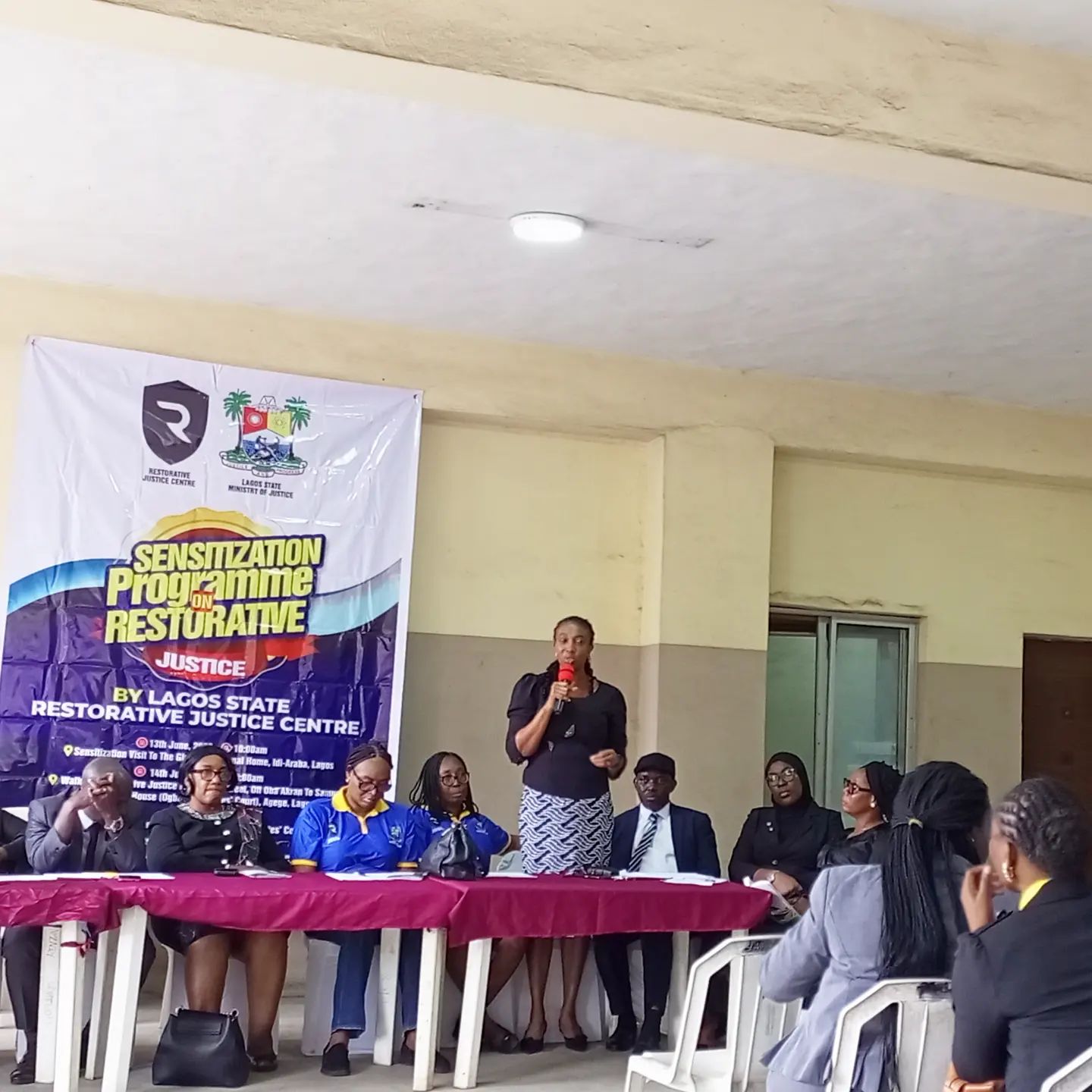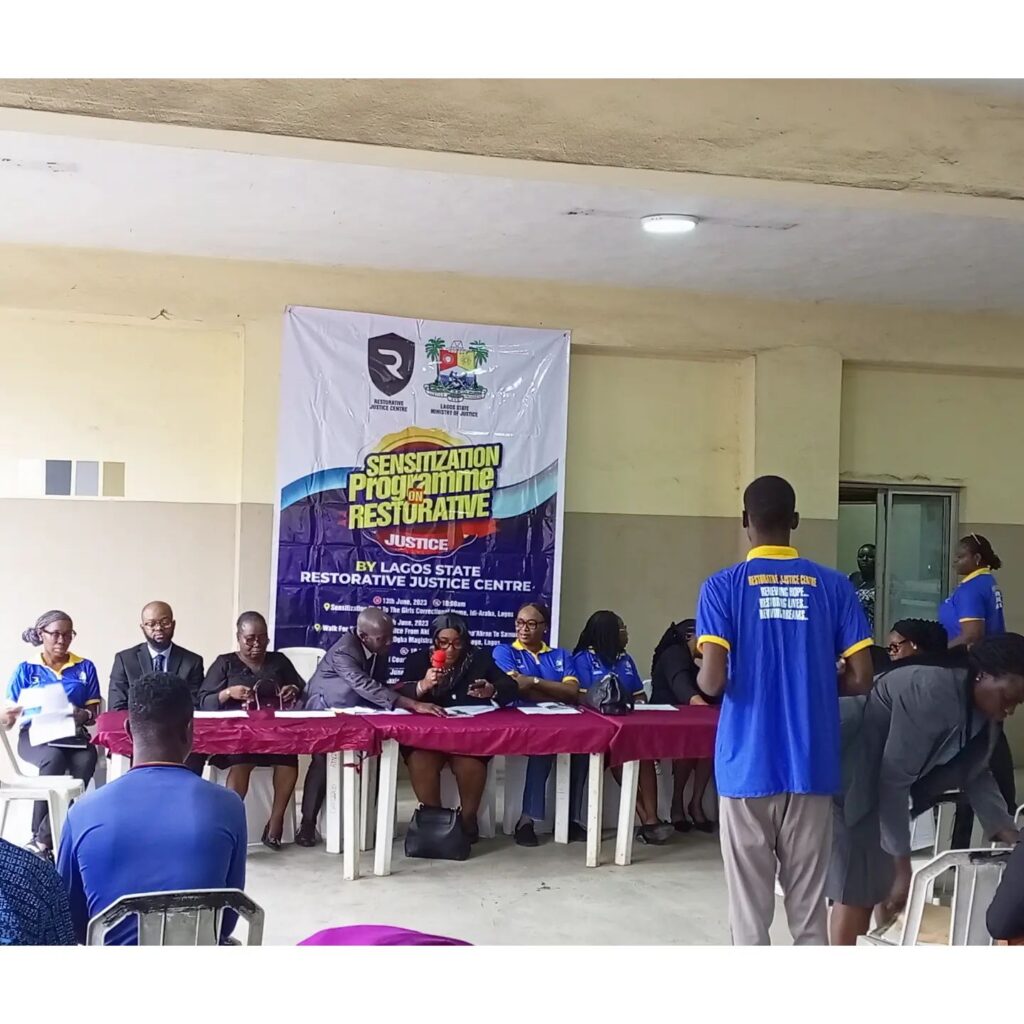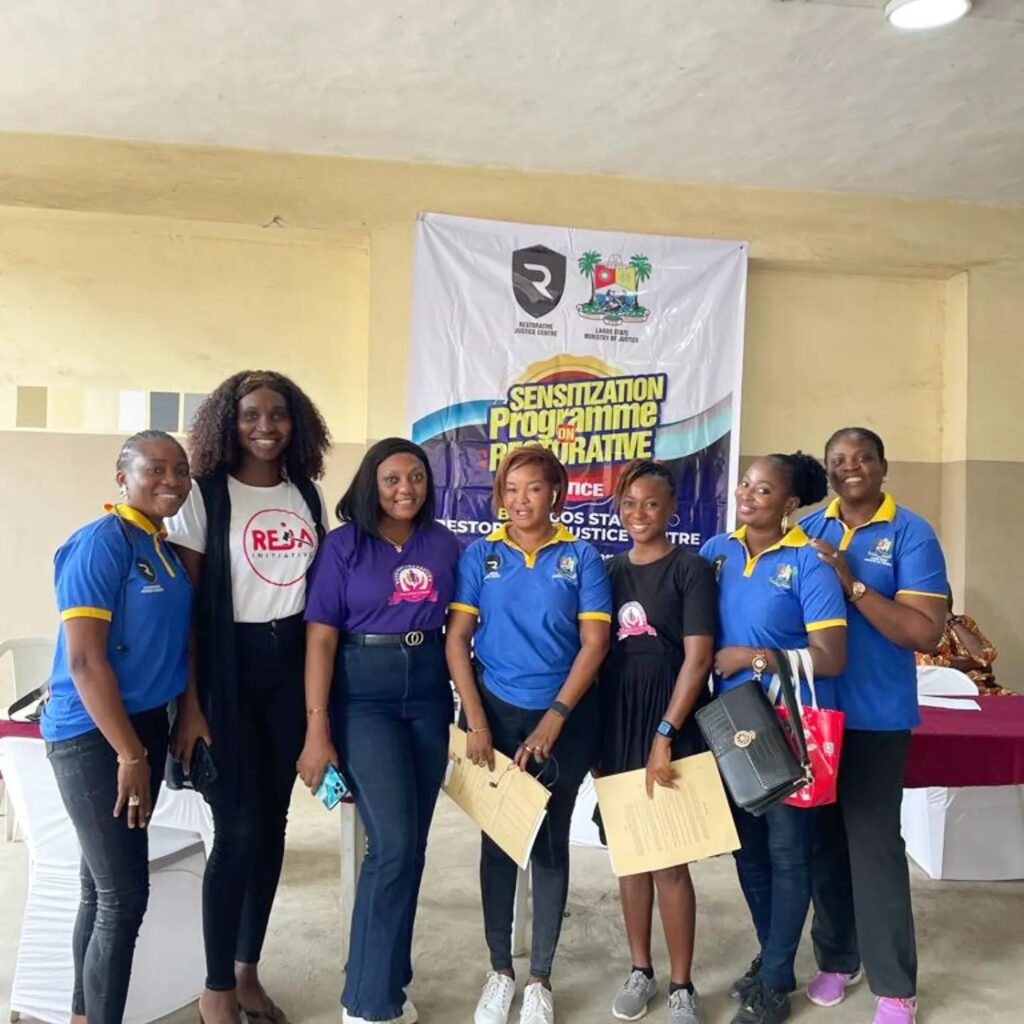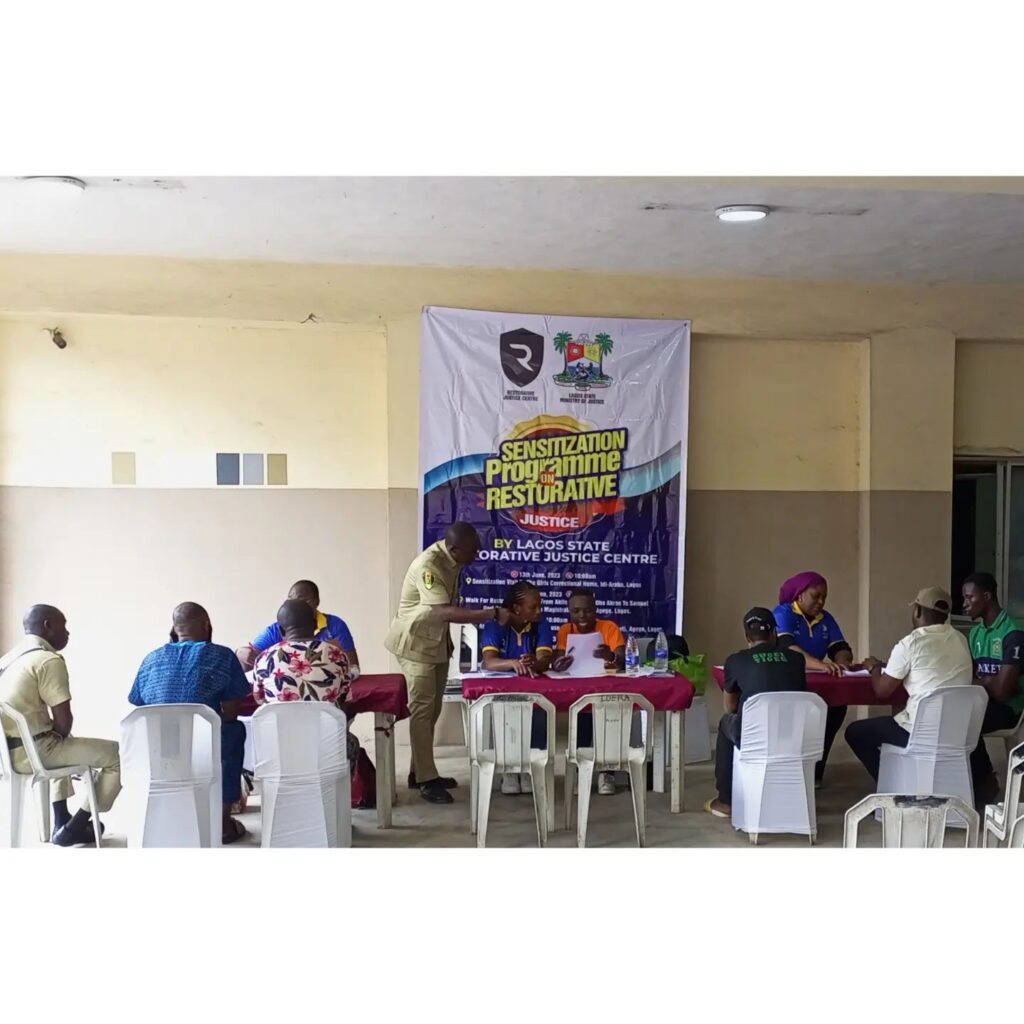
In a bold and progressive move towards transforming the criminal justice landscape, the Lagos State Restorative Justice Centre organized a Restorative Justice Sensitization Programme. This unique initiative aimed to not only raise awareness about the principles and benefits of restorative justice but also showcased its practical application through a blend of community engagement and legal expertise.
The two-part event, held with resounding success, showcased the potential of restorative justice to not only mend the frayed threads of the societal fabric but also create a more inclusive and empathetic legal system.

Part One: Walking Towards Restoration
The event commenced with a symbolic Walk for Restorative Justice, a visual representation of unity and progress. Enthusiastic participants like legal professionals and advocates of justice – joined forces to march for a cause that transcends conventional paradigms.
The march was a profound demonstration of collective commitment to change, portraying a society determined to break free from the shackles of punitive measures and embrace a system that values dialogue, healing, and rehabilitation.

Part Two: Legal Clinic
The second half of the program unfolded into a Legal Clinic, a forum where the theoretical underpinnings of restorative justice were translated into real-life scenarios. A select number of cases were put under the microscope, each serving as a testament to the power of restorative justice in action.
In this unique legal setting, restorative justice was employed as a transformative tool, facilitating dialogues between victims and offenders. These dialogues, carefully guided by skilled facilitators, provided a platform for open communication, understanding, and accountability. Offenders were given the opportunity to acknowledge the harm caused, express remorse, and take steps towards making amends. Meanwhile, victims found their voices amplified, gaining a chance to share the true impact of the offense and contribute to the resolution process.

The atmosphere within the Legal Clinic was charged with a sense of hope, empathy, and possibility. The power of restorative justice to heal wounds and foster genuine transformation was palpable as attendees witnessed the remarkable shift from adversarial dynamics to cooperative problem-solving.
REJA Initiative is honoured to be a part of this event that has the potential to ignite a broader discourse on restorative justice within the legal community, paving the way for its wider adoption and integration into the justice system.